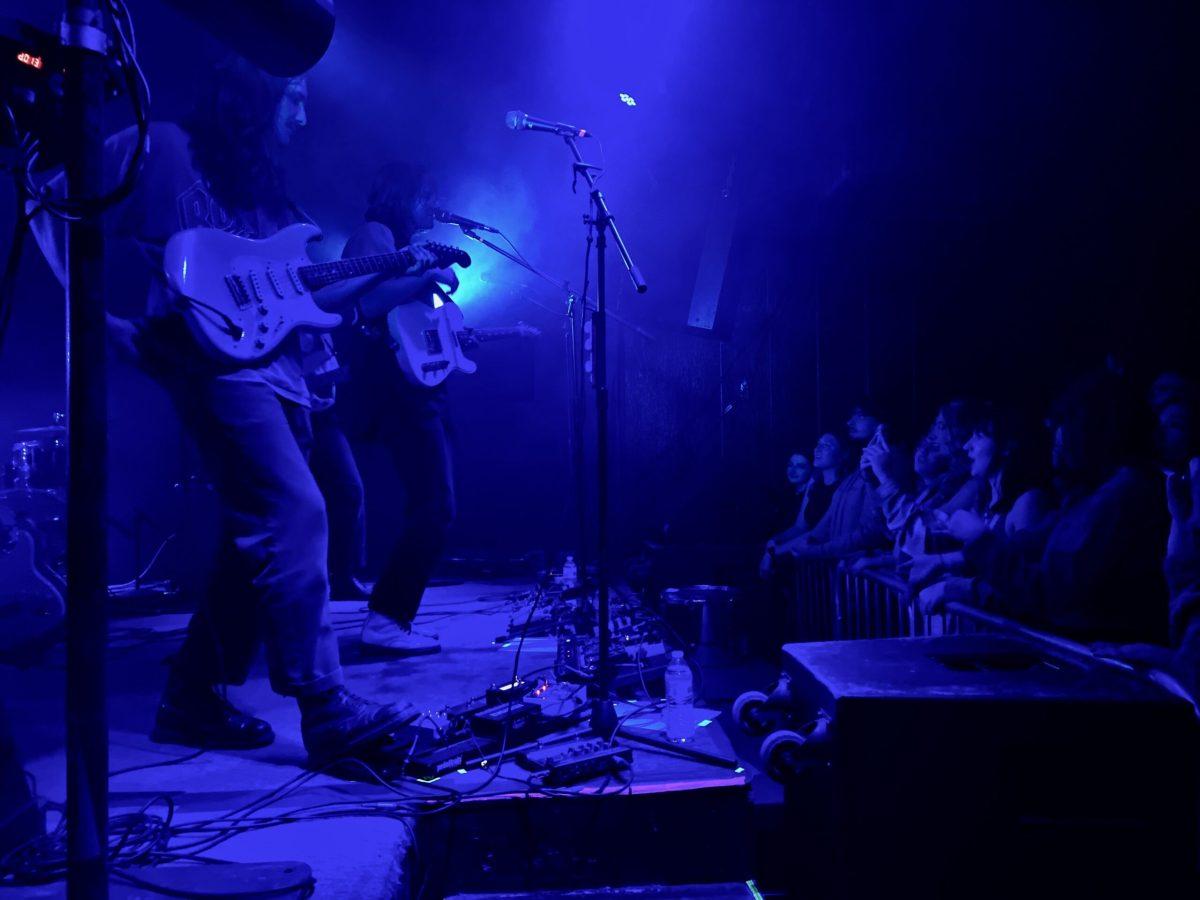In C, a piece composed by Terry Riley, was performed by Como’s Fliight, along with a group of incredibly talented local musicians in one of Ragtag’s theaters last Thursday night. The piece begins with the “Pulse” — a C note played on the piano in eighth notes throughout the entirety of the performance. The piece progresses through 53 musical phrases that each musician can play however many times they want, at any time they want (a compositional technique known as “aleatoric music”). The result is a sonic tapestry in constant flux, and the listener’s challenge is to overcome the mind’s tendency to focus on one sound, and instead experience the music as a holistic whole.
Before I discuss the events that transpired the night of February 05, 2015, I must admit that my senses cannot be entirely trusted. Weird things happened to my perception of body, space, and time that I’d never experienced before. About halfway through the piece my head began swaying back and forth. My hands went numb and seemed to melt into my seat. As the musicians sped up so too did my swaying. My heart rate approached that of the Pulse. For a moment I forgot about time and just felt an overwhelming sense of peace. Only that moment existed — there was no future and no past.
I was rudely awakened from this bliss when I realized my heart was beating at the same rate as the pulse — which was higher than 200 BPM. I would have liked to remain in this state of mind longer, but I’m also quite fond of my intact thoracic cavity. I forced myself out of the stupor and took deep breaths until my heart slowed down. I’d read about the effects music can have on people, but to experience it firsthand was amazing. Was this what Jeff Mangum was talking about when he explained his belief that “all things seem to contain a white light within them that i see as eternal”?
John Cage, one of Terry Riley’s minimalist peers, claimed the purpose of music was “to sober and quiet the mind, thus making it susceptible to divine influences.” I spoke in my previous post of how spirituality can be found in repetition, through a process involving the Orientation Association Area. In short, this part of the brain is responsible for maintaining a map of the self in relation to the environment, and can be “deactivated’ through extended repetition or meditation. This sort of stimulus — dancing, whirling, meditation, group prayer — is a big part of many world religions and is sometimes thought to be a way for humans to experience the divine. Picasso claimed “It took me four years to paint like Raphael, but a lifetime to paint like a child.” In a similar sense, these minimalist composers were musical virtuosos that dedicated their lives’ work towards a “return to simplicity after the development of an earlier style had run its course to an extreme and unsurpassable complexity.” They were onto something special that we’re only now beginning to be able to understand, and something that I was able to get a taste of last Thursday night. It’s certainly something I’ll never forget.
*Note: I’m not claiming that world music is in any way more primitive or inferior to that of the western tradition, however I believe any reasonable person can agree on the incredible complexity of one of Mozart or Beethoven’s symphonies. Both are equally respectable means of expression that accomplish different things.
If you were unable to catch the show last Thursday, keep on the lookout for a full video of the set via Ragtag.


